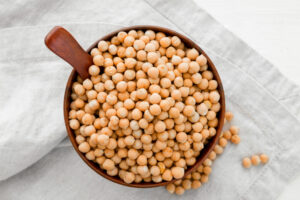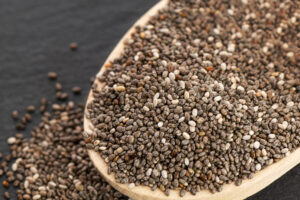Trending
What is a Kumquat?
Kumquats are unique citrus fruits that originate from the Rutaceae family. They are often described as the smallest member of the citrus family and are known for their sweet, edible rind and tangy pulp. The name “kumquat” comes from the Cantonese word “gam gwat,” which means “golden orange.” Unlike other citrus fruits, you can eat kumquats whole, including the skin, which adds a burst of sweetness to the tart interior.

History of Kumquats
The history of kumquats dates back to ancient China, where they have been cultivated for over 4,000 years. They were first introduced to Europe in the mid-19th century by Robert Fortune, a plant explorer, and later spread to North America. Today, kumquats are grown in many parts of the world, including the United States, Japan, and the Mediterranean.
Varieties of Kumquats
There are several varieties of kumquats, each with its own unique characteristics. The most common types include the Nagami, Meiwa, and Marumi kumquats. Nagami kumquats are oval-shaped and have a tart flavor, while Meiwa kumquats are rounder and sweeter. Marumi kumquats are similar to Nagami but have a spicier taste.
Nutritional value Kumquat
Kumquats are a nutritional powerhouse despite their small size. They are rich in vitamins, minerals, and dietary fiber, making them an excellent addition to a healthy diet.
Vitamins
Kumquats are particularly high in vitamin C, which is essential for immune function, skin health, and wound healing. They also contain significant amounts of vitamin A, which supports vision and immune health, and vitamin E, which acts as an antioxidant.
Minerals
Kumquats provide a good source of minerals such as potassium, which helps regulate blood pressure, and calcium, which is vital for bone health. They also contain smaller amounts of magnesium, iron, and zinc.
Caloric Content
Kumquats are low in calories, with approximately 71 calories per 100 grams. This makes them a guilt-free snack option that can be enjoyed as part of a weight management plan.
Health Benefits of Kumquat
The health benefits of kumquats extend beyond their impressive nutritional profile. Consuming kumquats can provide a range of health advantages, from boosting the immune system to improving digestive health.
Antioxidant Properties
Kumquats are rich in antioxidants, including flavonoids and carotenoids, which help protect the body against oxidative stress and reduce the risk of chronic diseases such as cancer and heart disease.
Immune Support
The high vitamin C content in kumquats helps strengthen the immune system, making it more effective at fighting off infections and illnesses. Regular consumption of kumquats can help reduce the duration and severity of colds and flu.
Digestive Health
Kumquats are an excellent source of dietary fiber, which aids in digestion and helps prevent constipation. The fiber content also promotes a healthy gut microbiome, which is essential for overall digestive health.
Skin Health
The antioxidants and vitamins in kumquats contribute to healthy, glowing skin. Vitamin C aids in collagen production, which keeps the skin firm and youthful, while vitamin E protects the skin from damage caused by free radicals.
Weight Management
Kumquats are low in calories and high in fiber, making them a perfect snack for those looking to manage their weight. The fiber content helps you feel full longer, reducing the likelihood of overeating.
Allergies and Side Effects of kumquats
While kumquats are generally safe to eat, some people may experience allergies or side effects.
Common Allergies
Allergic reactions to kumquats are rare but can occur in individuals who are allergic to other citrus fruits. Symptoms may include itching, swelling, and difficulty breathing.
Precautionary Measures
If you have a known citrus allergy, it’s best to avoid kumquats or consult with a healthcare professional before consuming them. Additionally, if you experience any adverse reactions after eating kumquats, seek medical attention immediately.
Culinary Uses of Kumquat
Kumquats are incredibly versatile in the kitchen and can be used in a variety of dishes, from sweet to savory. Their unique flavor profile makes them a favorite among chefs and home cooks alike.
Cooking Tips
When cooking with kumquats, it’s important to remember that the peel is sweet while the flesh is tart. This balance can be used to create complex flavors in dishes. You can slice them thin and add them to salads, use them as a garnish, or cook them down into sauces and marmalades.
Popular Recipes
Some popular recipes that feature kumquats include kumquat marmalade, kumquat chutney, and kumquat glaze for meats. They can also be used in baking to add a citrusy twist to cakes and cookies.
Kumquat Preserves
Kumquat preserves, such as jams and jellies, are a great way to enjoy the fruit year-round. These preserves can be spread on toast, used as a filling for pastries, or paired with cheese for a delicious appetizer.
Kumquat Drinks
Kumquats can be used to make refreshing beverages, including juices, cocktails, and infusions. Their tangy flavor pairs well with other citrus fruits, herbs, and spirits, making them a popular choice for mixologists.
FAQs About Kumquats
Can you eat kumquats raw?
Yes, kumquats can be eaten raw. The entire fruit, including the peel, is edible.
How do you store kumquats?
Kumquats can be stored at room temperature for a few days or in the refrigerator for up to two weeks. For longer storage, they can be canned, frozen, or dried.
What are the health benefits of kumquats?
Kumquats are rich in vitamins, minerals, and antioxidants, providing benefits such as immune support, improved digestion, and skin health.
Are kumquats good for weight loss?
Yes, kumquats are low in calories and high in fiber, making them a great snack for weight loss.
How do you use kumquats in cooking?
Kumquats can be used in a variety of dishes, including salads, sauces, preserves, and desserts. They can also be used to flavor beverages.




